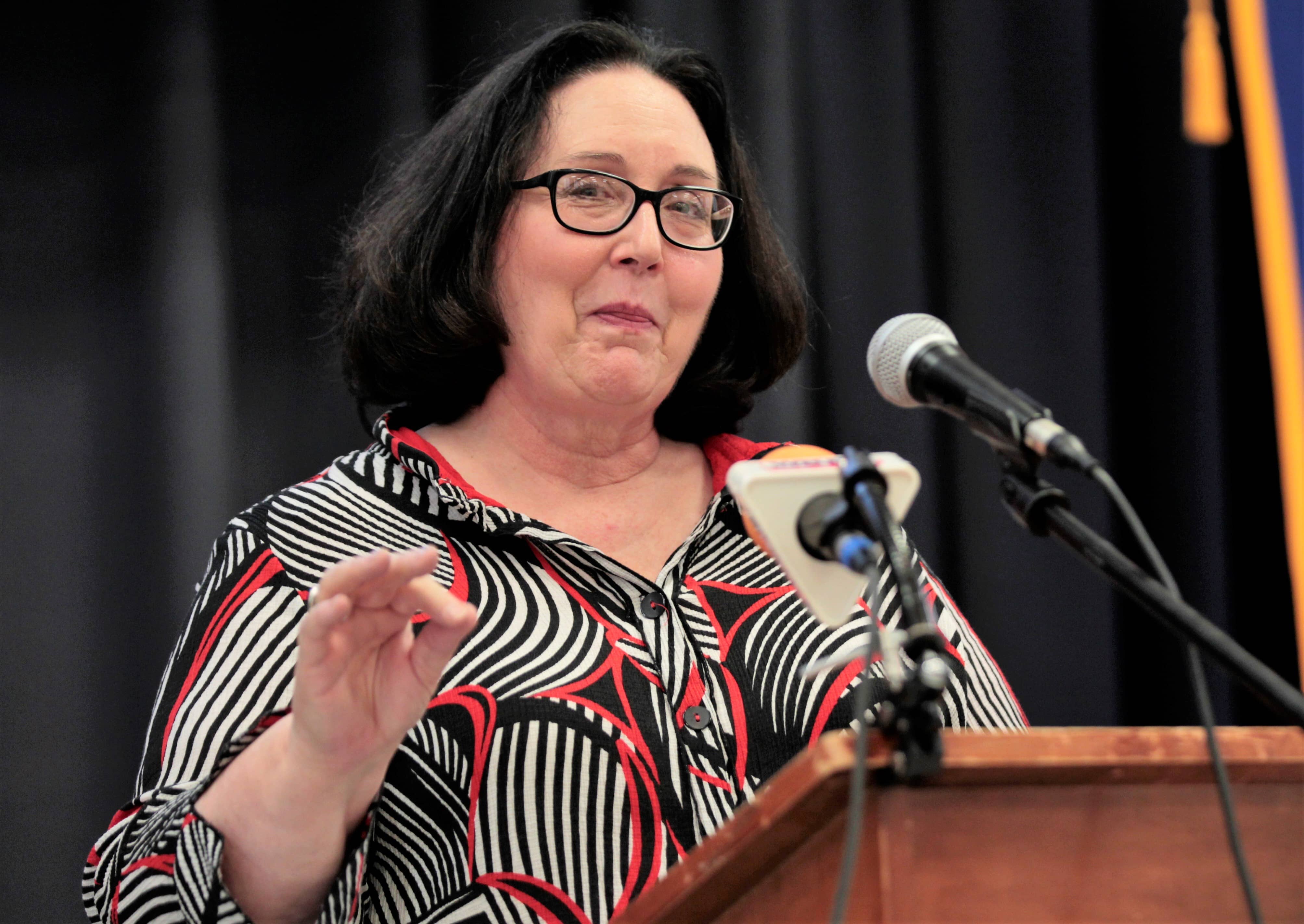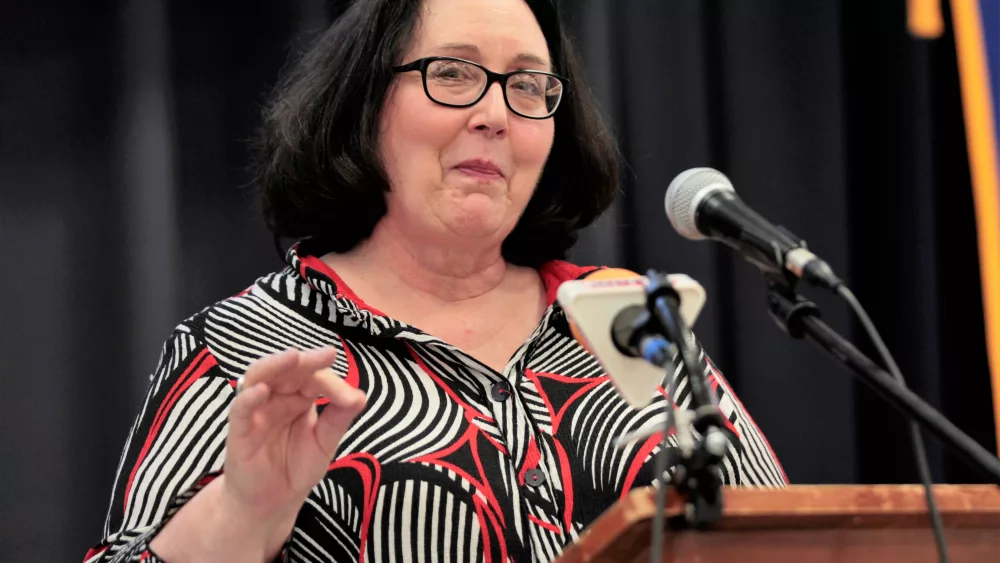
For more than a decade, Hopkinsville’s Jennifer Brown has either been a board member or president for the Kentucky Historical Society.
With her time and term on this governing body nearly expired, the former Kentucky New Era reporter and co-founder of the Hoptown Chronicle spent Tuesday afternoon with the Hopkinsville Rotary Club opining about the organization’s importance to the Commonwealth, and Christian County’s strong ties to it.
Front and center, she said, is none other than Dr. Tom Riley. Before his 2002 death, the first-ever president for Hopkinsville Community College played his part in the creation of the state’s home for history: the Thomas D. Clark Center for Kentucky History.
Built in 1999 and located at 100 West Broadway Street in Frankfort, Brown noted it took more than $17 million in state funding for its construction.
As the executive director for the Museums of Historic Hopkinsville-Christian County, Brown said Alissa Keller’s efforts were honored just last year.
Another recent KHS honoree, she said, needed little introduction to the local community.
And just a month ago, former Hopkinsville resident Joe Craver was tabbed for the KHS “Award of Distinction,” following his efforts to detail the resting place of 10,000 veterans in Christian County — several of them in the humble, historic Vine Street Cemetery.
Brown also revealed that of the 2,500-plus KHS historical markers professionally planted across the state, more than 30 call Christian County home.
Two more, she said, are on the way in the coming months: one for Peter Postell on the corner of 6th and Virginia, and another for Elder Watson Diggs.
According to the Notable Kentucky African Americans Database, Postell was a former slave born in South Carolina whom lived from 1841 until 1901, enlisted in the 16th U.S. Colored Infantry by way of Clarksville, and at the time of his death was considered “The Richest Negro in the South” — touting an estate valued north of $500,000.
Watson Diggs, meanwhile, has been described by the Kentucky Commission on Human Rights and the Kappa Alpha Psi fraternity as “The Dreamer.”
Born 1883 in Hopkinsville and after collegiate ventures at Indiana State and Howard, he co-founded this Greek organization along with nine other men at Indiana University — and it’s known as one of the earliest Black national social fraternities in American history. In 1916, he became the first African-American graduate of IU’s School of Education.
One Hopkinsville Rotarian also told Brown that Todd County’s Claymore Camp, through the assistance of Elkton Rotary Club President Glenn Slack, has applied for its own KHS marker. Set to celebrate July 20-30, the long-running non-denominational church revival and potluck has been open to the public and ongoing for 120 consecutive years.
Brown also encouraged Hopkinsville Rotarians, or anyone, really, to either join the KHS or visit its properties in Frankfort — which also include the Kentucky Military History Museum and the old Capitol building.






